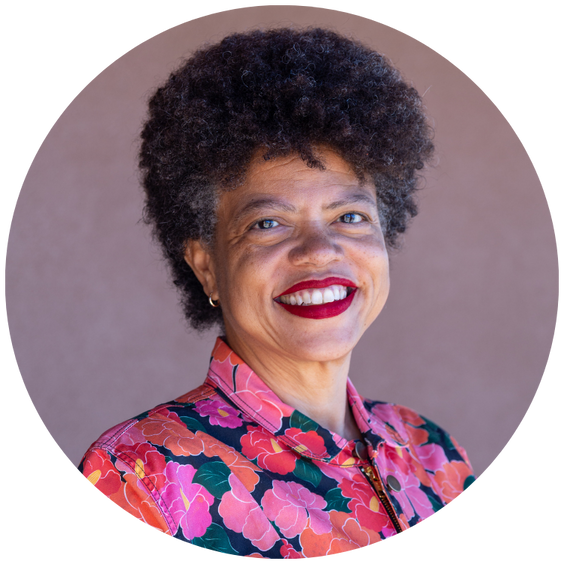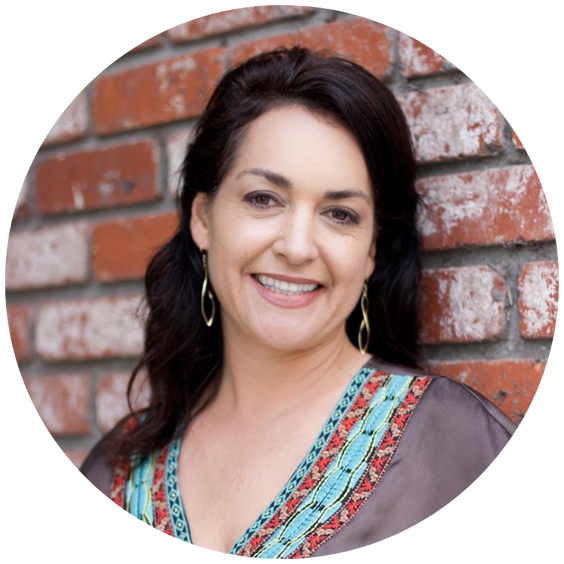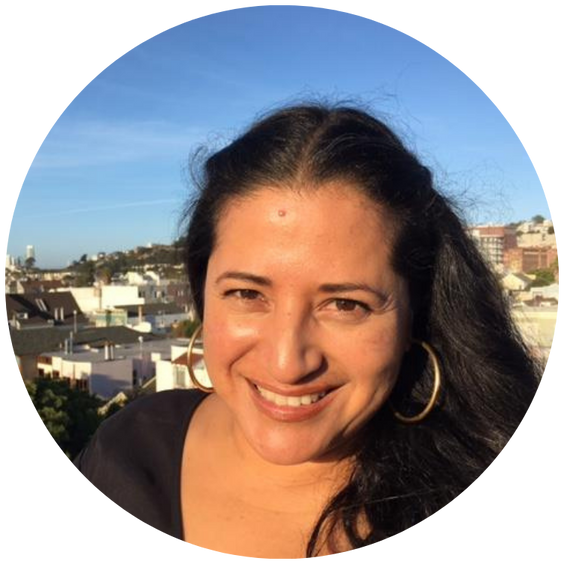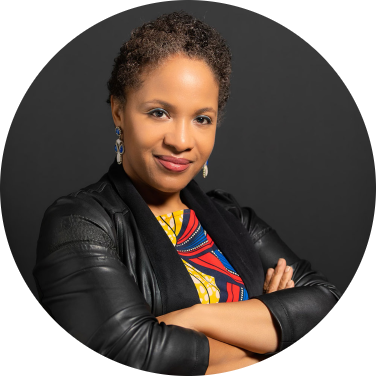Transcript
Kay Suarez (47:45):
Building indigenous black solidarity is essential for confronting the interconnected systems of colonialism, slavery, and racial capitalism that have historically oppressed both communities.
Kay Suarez (46:48):
By recognizing shared struggles while honoring distinct identities, organizational leaders can foster deeper trust, accountability, and transformative change.
Kay Suarez (47:11):
This solidarity creates space for collective healing and liberation, rooted in mutual respect and justice. Join us for an in-depth conversation with Elissa Sloan Perry and Aja Couchois Duncan of Change Elemental, along with Amate Perez of Latinx Racial Equity Project, who will all share valuable insights and experiences from working to build solidarity between indigenous and black communities.
Kay Suarez (00:02):
Welcome friends: Elissa, Amate and Aja. Thank you so much, deep gratitude for joining us for the podcast. I know each of you is super busy doing all the important work of solidarity and liberation in the world, so I appreciate your pausing to have this conversation. I’ve been so excited to have it. I know it’s taken us about six months to schedule this date.
Kay Suarez (00:26):
So, again, thank you for your grace and your generosity and coming to share about some of the indigenous and black solidarity work you all have been doing together for some time.
Kay Suarez (00:38):
So, as part of Equity In Center’s commitment, our first value in our set of values is being pro-indigenous and pro-black. And as a black person, around pro-indigeneity or pro-indigenousness, that’s my learning edge.
Kay Suarez (00:54):
So, I see this conversation as a way for me to learn, as a way for Equity In The Center to learn, and as a way for those who are listening to learn more about being pro indigenous. What does it mean to show up in solidarity. And then for some folks, they’re learning edge as being pro-black, or both communities are learning edges for them.
Kay Suarez (01:14):
So, I just want to name that I’m coming from a learning position, and that this conversation is part of Equity In The Center’s commitment to learning in public, and certainly, mine. So, please correct me as we go, but I’m here to learn from each of you, and it’s been a pleasure to learn from and with each of you over the years.
Kay Suarez (01:33):
So, to start, it would be great if you could introduce yourselves, share a bit about your background and your experience in race equity work. If you want to talk about in your introduction how the three of you came together around the particular body of work you’ve been doing together, feel free. I’m just going to go in the order that I see you on screen. So, Elissa, if you’d like to start and then pass it to Amate, and then from Amate to Aja.
Elissa Sloan Perry (01:59):
Sure. What to say about myself. I’m Elissa Gabrielle Sloan Perry. I’m pronoun agnostic, as long as it’s respectful, we’re good. I am a Director at Change Elemental for specifically for the Prefiguring Futures Lab work. I am black, I am also of Mississippi Choctaw and Cherokee lineages, and queer, and have been in and around this work in different forms for a long time.
Elissa Sloan Perry (02:42):
So, that’s the short version. I’ll just add that I started out as a teacher in a continuation high school, and everything evolved from there. And I will pass it to Amate after I say thank you for having us and having me. And I’m excited to be here in this conversation with these beautiful people. Okay, onto you, Amate.
Amate Perez (03:14):
Well, I’m smiling, because three of my favorite people are in this room with me right now, so thank you for having us. And Elissa, Aja and I have been deep in the journey to explore these questions. And so, it’s exciting to share it with you.
Amate Perez (03:30):
So, my name is Amate Perez. My pronouns are she, we, and I shifted around because I was like wait, my ancestors are on the wall, I need to have my ancestors with me. And so, you’ll see on the top, my great-grandmother Fransisca, and Grandpa Samuel Crispine. And below her is my most recent elder ancestor, Cruz Perez Torres, and my grandpa, whose picture’s not there, we’re very matrilineal. And I’m going to push my mom to get my grandpa up there.
Amate Perez (04:05):
So, I’m from Cuicatlán, which is in Mesoamerica. My people are Nahua and also Chʼortiʼ Maya, and I am the Emergence Strategy Director at LatinX Racial Equity Project. We’re a collective of black and indigenous Latina people who are decolonizing Latina.
Amate Perez (04:27):
And I came to this work because a black elder saved me and really coached me into understanding racism in the U.S. from a southern black woman’s perspective. That was about 30 years ago, and that was Valerie Bats. And she literally saved my life. Because confronting white supremacy thinking that I was an exceptional brown person was going to kill me. And so, here I am doing this beautiful work with my siblings. Aja, come in.
Aja Couchois Duncan (04:59):
Yes, it is a pleasure, and also, strange to be in this configuration of recording with all of you. And not too long ago, we were together with you too, Kay, in person.
Aja Couchois Duncan (05:11):
My name is Aja Couchois Duncan, a mixed race Anishinaabe and French and Scottish. And I identify as two-spirit or queer, I use she or we pronouns. And I was thinking about this this morning and like how did I come to this work.
Aja Couchois Duncan (05:30):
And similar to Elissa, through writing and teaching and all three of us Amate, Elissa, and I are active writers, so that’s also interesting, and something that we share. And working with youth in particular.
Aja Couchois Duncan (05:45):
And then just sort of through the evolution of like trying to put together a paycheck, ended up doing what was at the time called diversity trainings. Which was basically a storytelling practice where we tried to make ourselves seem acceptable to predominantly white audiences.
Aja Couchois Duncan (06:05):
And through that, ended up somehow in organizational development, leadership development doing actually racial discrimination investigation. So, that was like sort of an interesting training ground.
Aja Couchois Duncan (06:17):
And then we all have been working together in different ways. I’m part of the Change Elemental team with Elissa. And then was part of a project that Amate co-founded called the Decolonizing Race Project. And we were working in different identity streams, if you will.
Aja Couchois Duncan (06:37):
So, we were working as a native circle. And through that, got a hold a lot of conversations with people that identified as mixed-race native people. And having the opportunity to like share stories and being able to do the work through storytelling that we do often in consulting and race equity work, which is connecting our individual lived experiences to the systemic ways in which we’re oppressed, and that oppression is internalized.
Aja Couchois Duncan (07:03):
So, really kind of through a storytelling lens, and then somewhat of a legal lens, I think is how I came to this work. And I will turn it back over to you, Kay.
Kay Suarez (07:13):
Thanks for sharing. And I’m Kerrien Suarez, I always forget to introduce myself. CEO of Equity In The Center. I use she/her pronouns, and I’m joining from Piscataway Land.
Kay Suarez (07:25):
To begin, we wanted to talk a little bit about the shared and distinct historical experiences of oppression and resistance among indigenous and black communities. And how I come to this work, how we’ve approached it in terms of learning within Equity In The Center is the result of the unique history of indigenous and African descended people on Turtle Island.
Kay Suarez (07:49):
So, last night, I was watching Find Your Roots, and it was like this extra special episode where they showed Professor Gate’s family history. And this show, when they cover the stories of the descendants of enslaved Africans and or indigenous folks, it always really drives home for me how we were made on this land.
Kay Suarez (08:13):
So, we’re all occupying the land on Turtle Island, but really, everywhere of indigenous folks. And African Americans, as we are called, were made on this land, we’re intentionally mixed race. And I see learning about pro-indigenous, pro-black solidarity as almost a manifestation of my Americanness. So, I just wanted to share that in terms of how I enter the conversation and why I want to learn, because I think if we’re going to get free on this land, it’s together.
Kay Suarez (08:46):
So, I invite any of you who might like to start. How do your own identities and positionalities influence how we engage in solidarity work? Specifically with regard to indigenous and black folks on Turtle Island? I can pick Elissa. I see your square lit up, go for it.
Elissa Sloan Perry (09:12):
It did. Wow, okay. I have so many thoughts. I’m not sure which direction to begin in. Will you just repeat the question one more time?
Kay Suarez (09:23):
Oh, sure. Okay.
Elissa Sloan Perry (09:25):
Pick a direction.
Kay Suarez (09:26):
Can you talk a little bit about the shared and distinct historical experiences of oppression and resistance among indigenous and black communities. You can start there if you like.
Elissa Sloan Perry (09:42):
Yeah. Well, I’ll talk about my way in. And it’s twofold. One, I feel like or I know actually I came here knowing some things and with some questions. I didn’t know what those things were or where they came from, but had recurring dreams as a child that were very much related to both struggles and the intertwined nature of these struggles.
Elissa Sloan Perry (10:17):
So, was carrying that and asking questions, and behaving in ways that were living out that wisdom I was born with. Then I also had lots of questions. I knew that my maternal grandmother looked different than the rest of the family. And before I was old enough to know better or got the side eye enough times, I would always ask my grandmother, “What are you?” And her answer was always either colored or black.
Elissa Sloan Perry (10:53):
And it wasn’t until I was in my twenties that she told me she was Choctaw. And I asked her why she always said she was black. And she said, because where I was in rural Mississippi when I was coming up, it was safer to be black, because there was a community. When her own mother passed, it was her black neighbors that took her in when she was 13.
Elissa Sloan Perry (11:25):
I mean, having visited Mississippi growing up, I grew up in St. Louis and Osage lands. I understood something about the experience of racism and anti-blackness that actually kind of felt … I mean, it’s what I imagine it is to feel like being persecuted. And to the idea that it was safer to be black was her experience just gutted me.
Elissa Sloan Perry (12:04):
And that’s having a cousin who had been dragged to death, a black cousin who had been dragged to death behind a pickup truck, like knowing that still.
Elissa Sloan Perry (12:14):
So, that kind of sent me on my own investigation and starting to learn many of the stories that had been disappeared and distorted. Wanting to learn more about my own lineages and also understanding the intentional separation of black folks who are actually indigenous Africans who were stolen.
Elissa Sloan Perry (12:46):
So, the disappearance of black folks’ indigeneity, and the disappearance of indigeneity on Turtle Island, yeah, that’s what sent me originally down this path, those twin things. What I came here with and what I was experiencing in my own family, and the history I knew of my own family.
Kay Suarez (13:16):
Thanks for sharing that. I can resonate with having difficulty understanding the choice to be black in the south because I heard a similar story from my aunt when I was about eight or nine, and it kind of stuck with me. Because I was like, how could it be worse than being black when the context is being lynched. And she was like but there was lower than that.
Kay Suarez (13:42):
And I do think I’ve continued not investigations, but like trying to understand that, like why that choice would be made, and then realizing that within the broader structural oppression in which indigenous people have been invisiblized.
Kay Suarez (13:59):
There is a thread where they were disappeared into blackness by choice because it was safe. Again, hard to wrap your head around. And then devastating when you get it. So, thank you for sharing that. Amate or Aja, I invite you all in.
Amate Perez (14:20):
Aja, you go, I went second last, so you go. I’ll go after you.
Aja Couchois Duncan (14:24):
I’ll follow the thread of exploration starting at family. So, part of the lived experience of the systemic erasure is that I am from a family that has erased its own family through multiple generations of separation and a lack of communication and connection.
Aja Couchois Duncan (14:45):
And so, that experience of being native was very isolated. And what my mother did was spend a lot of time with black people. And so, I grew up in the late seventies where love and family meant being with black people.
Aja Couchois Duncan (15:04):
And so, I would say that that is part of what brought me to the work around centering and presencing black people and their experience and their material wellbeing, and like all of the things that repair was needed. And what was the longer journey for me was actually like what does it mean to actually be native? And what is that repair healing and reparations or rematriation efforts need to be.
Aja Couchois Duncan (15:38):
And the continuation of the sort of like … just even like with quantum blood law, like Indians always disappear. There’s no narrative in which the Indians don’t disappear, and like how much that gets internalized, and so we erase ourselves and our connection. And then it can be really live and fraught among native people because we play that out of like who’s native and how native are you?
Aja Couchois Duncan (16:11):
I get like on almost a daily basis people asking me what percentage I am, and I’m like is there any other context where you ask people like what percentage of brown that you are, how black are you really? You may think it, but you aren’t going to say that out loud.
Aja Couchois Duncan (16:27):
So, yeah, I would say, I think what’s interesting about the … interesting being a euphemism for deeply fucked up – the difference is a one drop rule for like black identity. Like you can never not be black, or maybe if you pass the paper bag test, and there are stories of people who have disappeared into whiteness. But it’s more of a fixed category in terms of like you’re there and you stay there.
Aja Couchois Duncan (16:59):
And so, that different path has created all kinds of complications for our people solidarity, including black and native people, who are disappeared in native communities. And it also makes it really potent for us to be doing this work together because there’s so much healing needed.
Amate Perez (17:23):
I have to name it, like racialized capitalism. It was safer for native people to be in black community because black people were property, and native people were a threat to property because they were a threat/we are a threat to entitlement to lands, stolen lands.
Amate Perez (17:43):
And so, just when we see it through an economic system, not just a racialized system of ideology to create hierarchy, but that underneath that is the accumulation of wealth and the othering of land and other beings, and the destroying of a whole cosmovision that has to do with understanding how the universe works.
Amate Perez (18:07):
And so, for me, I started to see black people as indigenous when I got close to my mentor Valerie Bats, because literally, she would tell everything in stories, just about how she grew up as a little girl in the South and what her father did and what her mother did and what her grandmother did.
Amate Perez (18:26):
And they were just all these very rich narratives that I was like, “Oh, there’s something really familiar. She’s been talking for 20 minutes and I’m fucking loving it.” And so, there was a way that her way of describing things, the cadence of her voice, the tone … there was something so familiar that I started to really think about why is it that they work so hard to separate us? And the reason why is because within us, there’s all this grounded sense of knowing, and some things have not been broken. Like-
Elissa Sloan Perry (19:00):
It’s actually true wealth, right?
Amate Perez (19:02):
Right, it’s true wealth. And the ways that like black people relate to each other. When you’re in a room full of black folks, someone walks in, and there’s so much joy and there’s like this abundance of welcoming, and there’s a way that we have continued, black indigenous people and Turtle Island indigenous people have continued to practice our indigeneity.
Amate Perez (19:29):
And so, I love that you have a Decolonize shirt because it starts with decolonizing ourselves. To say, what of the way I live my life is actually walking an indigenous African path that I hadn’t labeled that and thought of that in that way, and why haven’t I thought of it in that way?
Amate Perez (19:49):
And I think that as black folks start to decolonize themselves and recover and rewalk the path of indigeneity, we’re going to find so much more synergy. So, instead of like competitiveness, we can build on each other’s indigeneity.
Amate Perez (20:09):
And so, the work that the three of us are doing is about that. It’s about saying, in what ways can we, instead of indigeneity being reductive, how can it be expansive, because when indigeneity is expansive, mother earth resources won’t be resources. They will be other beings that we coexist with. How do we bring more matriarchal values into the way that we manage how we live our lives, and how much we exploit and use.
Amate Perez (20:40):
What if we shifted from using and exploiting to being in co-relationship? I mean, it could just really transform the world. And I think that’s why they fear us, and that’s why we’ve been pushed so far apart.
Amate Perez (20:56):
From my own, as a Latina person who grew up thinking I was an ignorant peasant who had no value in this country, to coming to the U.S. and then being told that I was brown, and then that I was Latina. And then it took me a long time to actually claim who I am and to start to see, oh wait, I grew up in this traditional home that I felt so embarrassed by.
Amate Perez (21:22):
And yet, there’s a way that I learned so much about how to be in relationship to others in that humble adobe home. And so, it’s been a beautiful journey, and I love working with my two siblings as we recover our full humanity.
Kay Suarez (21:43):
Thank you to each of you for sharing that or sharing all of what you did. And I got out my Decolonizer shirt because I thought it was appropriate for today. And also, because I do like to wear it as a reminder for the reasons that you said, Amite, it’s like a continuous process of decolonization.
Kay Suarez (23:36):
I guess going back to the beginning of our relationship with EIC and Native Americans in philanthropy. So, the first time I sat in a circle practice that was held by indigenous folks, because black folks have circle and all of us have circle practices that of course, came from indigenous practice. But the first time I was in a circle that was held by indigenous folks and the elders started talking, I was like so we’re going to be here all day. And it was extremely familiar.
Kay Suarez (24:10):
I was like I’m just going to settle in, we’re going to be here, for as long as it takes. It’s going to be a while. But it felt like home in a way. We are similar in our cultural practices, and we were intentionally separated because if we got together, just like we were separated from poor white folks going back in the history of this country.
Kay Suarez (24:33):
Because yes, if we all got together, then we could collectively tear the system down that’s been built to preference and privilege and create wealth for just a few of us. Well, not us here on this recording studio, but for white men mostly.
Amate Perez (24:50):
Hey, Kay, I want to give a shout out to the Haitians because actually, they did as indigenous people living on the island of Haiti, they actually did fight for their freedom, and they were severely punished for it. And the legacy of that continues.
Elissa Sloan Perry (25:05):
Yeah, they’re still being punished for it.
Amate Perez (25:07):
They’re still being punished. And so, they did and they’re such an inspiration.
Kay Suarez (25:15):
Yeah. One thing I love about my Haitian brothers and sisters is that when they introduce themselves, they lead with that. And it’s such an important lesson I feel for me as a black American that their sense of identity and place in the world is rooted in that revolution, like successful revolution.
Kay Suarez (25:35):
And that of course, the devastating flip side of the coin, which is that they have paid for it and today, are still paying for it. Which is a horrible case study of how white supremacy operates and what happens when you resist. And they were intentionally made an example of for doing what they did.
Kay Suarez (25:56):
Since EIC focuses primarily on supporting organizations in thinking through issues of equity and solidarity, my next question is about organizations and how might organizational structures reinforce anti indigenous or anti-black racism even unintentionally. And I think a lot of that has come up in the different threads of this conversation.
Kay Suarez (26:19):
But I’m wondering, where do you think … because we are programmed to be anti-indigenous and anti-black, where do tensions and challenges arise as we work to build solidarity? Because often, we’re our own worst enemy, not just in organizations, but as individuals because we are working to decolonize ourselves as individuals.
Kay Suarez (26:38):
So, then there’s a process for that, for organizations and for society. So, how do you see that work unfolding? And what recommendations or models might you offer to those listening as they seek to do this work? Aja, do you want to start?
Aja Couchois Duncan (26:52):
Yeah. I’m like am I going to say all the things I actually think? I guess the answer is, once you turn 55, yes. You’re going to say everything you think.
Aja Couchois Duncan (27:04):
I think one example is the hyper visibility and untenable expectations placed predominantly on black women to fix, repair everything wrong in every organization ever in the one job, that doesn’t even include that thing. And it is kind of a replication of the hyper visibility of black identity and kind of excessive responsibility for healing racism somehow.
Aja Couchois Duncan (27:38):
And then land acknowledgement without any sort of relationship or rematriation. So, it’s again, this like erasure, “I’m sorry you’re all dead, it’s a bummer, but we’re just going to keep on keeping on, or you are going to be the magical being that is going to repair everything in your role 40 hours a week and we aren’t going to give you any more money for it.” It’s kind of a continual manifestation of the same thing.
Aja Couchois Duncan (28:09):
So, I would say that equity work that doesn’t include rematriation and reparations efforts are not real. It’s just about expanding access to goods and services of racialized capitalism and enslavement and stolen land. And that feels like a lot at an organizational level, meanwhile while you’re doing other things too.
Aja Couchois Duncan (28:34):
So, it’s interesting that a lot of us have been sort of transformational change partners at a site of a microcosm of the macrocosm. And I think that there’s something about like that kind of setup, and then the way that race equity work in the two minutes it was funded also, we found out through analysis later, and it wasn’t unanticipated that a lot of that went to white dominant organizations. So, I would say those are some of the … just naming what we see and experience.
Amate Perez (29:18):
I just wanted to follow that and just say that there’s still so much segregation happening, that in multiracial spaces, you find black folk with Latino folk who haven’t done their decolonizing work. And then you have Asian folk and white folk. And then native spaces are very native. It’s like almost everyone’s native and maybe there’ll be a one or two black folk from my experience in the tribal groups that I work with.
Amate Perez (29:44):
And so, in multiracial spaces, maybe there’ll be one native person of a whole staff team, and there’s so much misinformation across all ways. Anti-blackness is alive and well in all communities, including black communities.
Amate Perez (30:02):
Like native erasure and native dropping down into the wallpaper because I’m afraid, it’s like something that happens. And so, when you have that lack of work to say in what ways are we recreating native invisibility, like what Aja just said. Are we just naming the peoples, but not being concerned about what are their land back struggles? How are we as a liberatory organization actually supporting indigenous people to get their land back?
Amate Perez (30:37):
And or like how are we questioning the ways that … the overburden placed on black women is part of racialized capitalism and anti-blackness, and how do we shift from scarcity overload, a crisis and urgency mode to how do we create spaciousness and rest for people who have been targeted in these ways?
Amate Perez (31:03):
And so, all that, I see it playing out. And sadly, the way that it looks like is black women and native women fighting each other. Feeling that they’ve experienced anti-blackness and I’m sure it is happening. And native folks feeling like are we ever going to be acknowledged and respected?
Amate Perez (31:28):
So, I am a southern native, and so I know that part of my job is to support my mother relatives to rematriate, and to get their land back. And black folks to have black liberation. And so how do we as liberatory change makers supporting communities, how are each of us walking that walk and not just talking the talk. And we do that at LREP. We’re fortunate that we’re tiny and for a while, were resourced well. And so, each of us were engaged in land back and rematriation efforts wherever we were residing. And so, that experience of actually doing that work, it’s just made things real for us.
Elissa Sloan Perry (32:20):
Yeah. I think … I’m sorry, are you complete Amate? I think the biggest way, if I could zoom up a little bit, is that organizations get in the way and reinforce, I think it’s even beyond organizations, but the whole sector, if you will, like the nonprofit industrial complex as we call it sometimes, gets in the way, is because what is actually required is scaling deep.
Elissa Sloan Perry (33:03):
And scaling deep is the antithesis of how nonprofits and the whole sector are set up. Everything from how resources work, timelines, siloing of issues, evaluation, like all those things, even work schedules, all of that stuff. Parenthood, being a good community member, they’re all intention with those expectations and setups.
Elissa Sloan Perry (33:46):
There’s also a way in which … from the time I started – not maybe when I started, but probably 20 years ago, I got very clear that any kind of development, like work goodness, whether it’s organizational development, human development, leadership development, what have you, is all about remembering what it is to be human and what it is to be humane.
Elissa Sloan Perry (34:15):
And our organizations are not set up for that, and we’re in that battle definitely what Aja talked about, and what Amate talked about, the burden on women and black women indigenous women of African descent and Turtle Island descent carrying the burden, that’s a big part of it. And even just the way racial equity and the whole system of DEI was formed was also set up in a way that actually isn’t about liberation or sovereignty, or rematriation, or any of that, or repair or healing.
Elissa Sloan Perry (35:07):
As Aja alluded to, it’s about getting more people access to a racist, settler, colonialist project. And the nonprofit industrial complex is a function of racialized capitalism. It was a tax shelter set up for white people, at least for wealthy people, and wealthy people or predominantly white people.
Elissa Sloan Perry (35:39):
So, there’s all of that. And fighting those things, trying to unlearn and undo those things also gets in the way of the scaling deep that we need to do among us, which is why we are starting small and taking our own medicine first as many cultures and folks do, and spreading out from there.
Elissa Sloan Perry (36:11):
It takes a lot. Every time we’re in these spaces, I have to consciously do work to forget that actually, the first two times I was ever called the N word were in native spaces. It wasn’t white people. And I know that there have been things in my family that have completely been anti-indigenous.
Elissa Sloan Perry (36:45):
And the last thing I’ll just say about that is I also, I don’t know if the right word is play, but dancing with, living with, singing with, crying with, laughing with the choice that both my grandmothers who were Turtle Island indigenous chose to marry dark-skinned black men.
Elissa Sloan Perry (37:10):
And most of the folks I know who are both, it was the Turtle Island indigenous women, if they had to choose where they were going to assimilate, they chose black folks. So, there’s something there also that is completely antithetical to our nonprofit ways of understanding the world and trying to impact it.
Amate Perez (37:44):
I’m going to jump in Elissa, thank you so much. I was like right there in that story, and the both ends of that. Them choosing into black community, and then you being called that painful word with the native community.
Amate Perez (37:59):
And in preparation for this conversation, I did a lot of thinking about similarities and differences between the two communities, and we’ve already named being de-tribalized as a strategy to crush our spirits. And the ways that native Turtle Island people and native African people, the journey that we have to reconnect to our spirit and our ways as a way of healing and finding liberation.
Amate Perez (38:26):
But one thing that kept coming to me was land, and the ways that, like both people who were stolen from Africa and trafficked, and Turtle Island folk were grieving for land, for stolen Africans, because they don’t know exactly which place they come from.
Amate Perez (38:48):
And for me, as a Turtle Island native, to be on a land where the white people own 90% of it and are destroying it, and I can’t live like where my grandmother lived on the beach, because now, it’s owned by all white people from the U.S.
Amate Perez (39:07):
And so, I am grieving the fact that I can’t have the intimate relationship that I need to have with land. And yet I know my land, I know my trees, I know what it smells like after it rains. And I know that it’s painful for stolen Africans to not know that.
Amate Perez (39:23):
And so, we’re both grieving our severed connection to land, but in a different way. And so, how do we make space for that different grieving and hold each other in that grieving, and know that in the end what it is that we’re looking for is that deep connection to place and to land, and to all the things that land and all the beings need to teach us. So, I wanted to share that, because that came so clearly to me.
Aja Couchois Duncan (39:53):
Thank you all. I’m going to jump off, two minutes.
Elissa Sloan Perry (40:05):
Amate, oh, sorry, I know you also have a hard stop and I just want to quickly name that one of the practices that Amate and Aja and I have been in with a slightly larger circle of folks is gathering in what we’re calling the baskets of commonality that we see as portals to scaling deep that exist across our cultures. And we’ve referred to several of them, but if we come together in ceremony, then the next strategies, next steps on the path, the guides, they show up.
Elissa Sloan Perry (40:51):
So, we’ve been in storytelling ceremony, we’ve been in land practices together, we’ve been in food and medicine-making practices together. Like that’s what it has looked like to scale deep, which is not something that you go to an office building and strategize around from your desk.
Kay Suarez (41:14):
Absolutely. Thank you for sharing that. And Amate, if you have to hop, I totally understand. Deep gratitude for each of you, and to Aja in absentia for everything you’ve shared. I feel like I keep coming back to the land, as you said, Amate, but also to rematriation and metrication. So, as a black American, I’ve always noticed from my indigenous sisters generally, their naming of the matrilineal nature of their culture.
Kay Suarez (41:44):
And me as a black American, not exactly understanding what that means, even though in my culture as a child, I thought it was matriarchal, but then I developed an understanding of the broader system.
Kay Suarez (41:55):
So, there is a similarity, we’re all in the same patriarchy and colonizer basket, but there is something different in the cultural practices that have remained held in indigenous culture over time, from which we all need to learn.
Kay Suarez (42:08):
We’ve used – I haven’t, but each of you has used the word “rematriation” a lot. I’m sure that most of our listeners don’t actually know what that means. So, as we close, you could share perhaps what rematriation looks like.
Kay Suarez (42:21):
And I think it’s some of what you just spoke to Elissa in terms of the practices and the ceremony you’ve been in together. Because the answers lie in the land, I’ve heard people say, I’ll sometimes say, I think it lies in rematriation because black women and indigenous women hold so much of this work, because without us, we would all be dead.
Kay Suarez (42:44):
So, our role has been, and I think is critical and it also kills us. So, taking a break is important, which is why I can’t join you next week, Elissa. And I’m really, really sad about that. So, I hope that I can be invited into one of these baskets again sometime soon.
Kay Suarez (43:01):
So, with that, what are your closing words to folks who may be listening and wondering where to go from here and how to be in solidarity?
Amate Perez (43:10):
I would love to answer the rematriation question, because I literally just came back from a retreat with some of my rematriation siblings, and we have Corrina Gould at the very end here who is Sogorea Te’, she’s the tribal chairperson for the Ohlone in Berkeley.
Amate Perez (43:28):
And so, rematriation is about land back, because in the end, it’s like native people need to be steward and caring for their lands. And so, it’s about getting as much land back to native hands as possible. And then it’s about caring for land in traditional ways and being able to repair the spirits of humanity through seeing what it looks like when you are in co-partnership with land and water and all the beings that live there.
Amate Perez (43:59):
And so, it’s rematriate because a lot of these efforts are being led by native women and understanding. And for us, womanhood is not about biology, and so it’s about the fem people who are upfront getting land back and actually re-practicing cultural and spiritual ways on land with all people.
Elissa Sloan Perry (44:23):
I learned from Maya, and I can’t remember Maya’s last name right now, but from an organization called Mycelium Youth Network. And she talked about rematriation as both returning and evolving too.
Elissa Sloan Perry (44:41):
So, it’s not like going to a past, but it is bringing forward wisdom and sacred practices of the past and evolving into the future. A worldview of the land mothering us as opposed to us dominating the land. Those weren’t her exact words. So, that’s the understanding I took away from what she was saying about rematriation. And it really resonated with me that that’s the relationship.
Amate Perez (45:19):
You’re talking about Milagro?
Elissa Sloan Perry (45:22):
No, it wasn’t Lil, it was someone that works with Lil.
Kay Suarez (45:32):
Thank you both. I want to be respectful of your time because I know you’re both so busy. So, deep gratitude for continuing to teach me and model so much of what I need to understand more deeply. So, I hope we’ll continue to be in space and practice and ceremony together. So, sending each of you my love as you go on your way. Thank you.
Elissa Sloan Perry (45:53):
Yes. Thank you so much for the invitation.
Kay Suarez (46:00):
You are among my favorite people. So, these are the spaces that keep us all going, especially in 2025.
Amate Perez (46:09):
Well, thank you for all the things you teach us and me. Appreciate it.
Kay Suarez (46:13):
Likewise. I hope you have an easeful weekend as much as possible.
